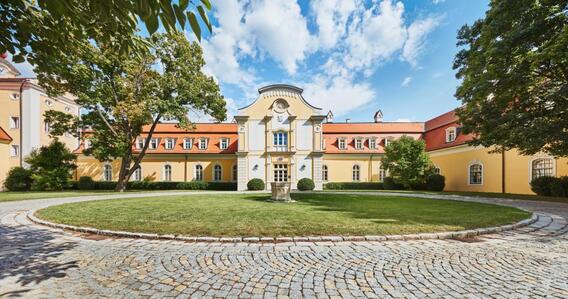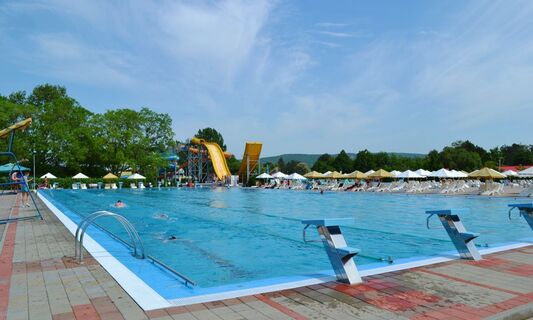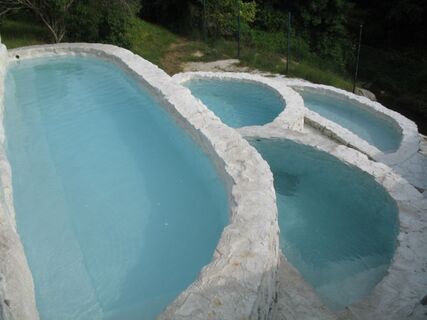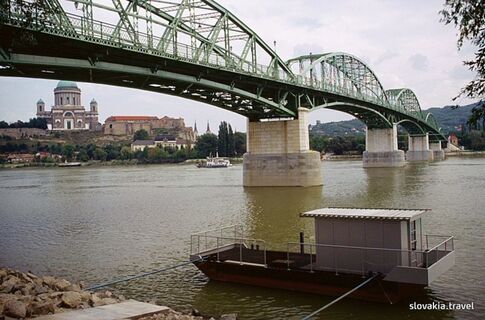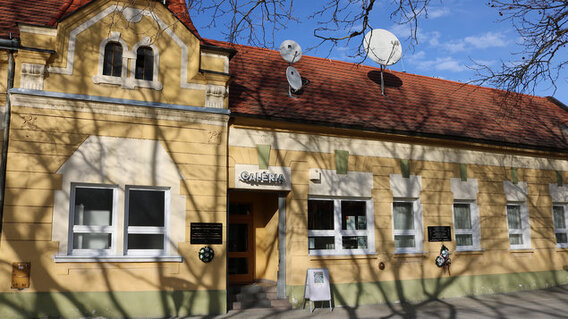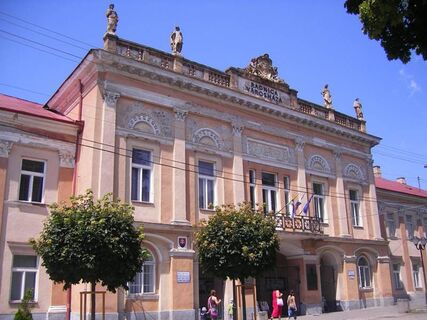Rotunda Dvanástich apoštolov
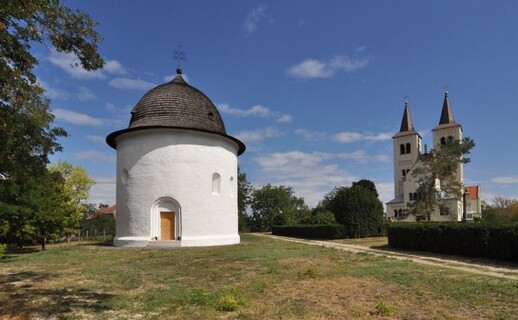
Ak ste milovníkmi architektúry, vzácnych historických stavieb či sakrálnych pamiatok, rozhodne by ste nemali vynechať obec Bíňa. Práve tu stojí románska rotunda s maľbami zo začiatku 12. storočia.
The village of Bíňa in the south-east of Slovakia is one of the most important archaeological sites in Slovakia.
The Roman Catholic church of the Virgin Mary with two towers built before 1217 is one of the sights of the village. Originally a Romanesque monastic church from the beginning of 13th century represents a late Romanesque building with unique Roman and early Gothic elements of European significance.
The visiors will be also attracted to the local Chapel of Twelve Apostles. Originally, it was a Romanesque rotunda with wall paintings from the beginning of the 12th century, renovated in the Baroque style after 1755. In 1944, due to a bombing, the Baroque coat fell off and the one in the Romanesque style appeared.







Takzvané Parížske močiare, najväčšie súvislé trstinové močiare na celom Slovensku, sa rozkladajú medzi obcami Gbelce a Nová Vieska v okrese Nové Zámky. Močiare predstavujú jednu z posledných pôvodných, a zároveň jednu najhodnotnejších lokalít vodného vtáctva u nás. Hniezdi tu viac ako 170 druhov vtákov, z ktorých niektoré sa nevyskytujú nikde inde na Slovensku.
The most famous tourist-marked viewpoint, simply called "Rocks", offers a beautiful view of the confluence of the Hron and the Danube, the town of Štúrovo, the Márie Valérie Bridge, and especially Esztergom with its majestic Classicist basilica representing the third largest church in Europe.
Surrounded by a landscaped garden, this Baroque château in Béla was restored in 2007 and offers a restaurant and a wine tavern. Guests enjoy free WiFi zone, free access to the outdoor pool and the wellness center. A breakfast buffet is served.
The Vadaš Thermal Relaxation Resort is located in the town of Štúrovo near the Slovak-Hungarian border. It is especially in summer that the centre becomes an ideal place for entertainment and relaxation where a number of sports facilities and other amenities are available. resort boasts a large pool called the "Lagoon" that includes artificial waves and whose shape resembles a sea bay.
Thermal Swimming Pool Santovka Welness with geothermal water and beneficial impacts on rheumatic deseases and cardiac - vascular system is located 14 km from Levice. There are unique massage waterfalls, the natural stone showers and travertine baths also called the rome spa.
Thermal Swimming Pool with an unique therapeutic geothermal water, with the mineral consistency similar to the Dead Sea water. There are other additional services in the area of swimming pool as massages, sauna etc. The complex is situated in the green area with sculptures made at the regularly organised art symposiums.
Ak ste milovníkmi architektúry, vzácnych historických stavieb či sakrálnych pamiatok, rozhodne by ste nemali vynechať obec Bíňa. Práve tu stojí románska rotunda s maľbami zo začiatku 12. storočia.
The most recently reconstructed bridge connects Slovakia and Hungary. It was reconstructed after 57 years´ time which was not very positive in terms of friendship of these two states.
The Július Barta City Gallery is housed in the building of the former Great Municipal Inn. According to locals, it is the most beautiful and most exposed place in the city, because it is located from the centuries-old plane trees right in the pedestrian zone.
Inštitúcia bola založená v Šahách v roku 1902 ako župné múzeum. Jej vznik iniciovala Hontiansko-župná múzejná spoločnosť na čele s Elemérom Pongráczom. Múzeum zaniklo v dôsledku zmien administratívneho členenia krajiny v roku 1924. Posledným kurátorom bol prvý uhorský olympionik Alajos Szokolyi. Znovuzaloženie inštitúcie ako mestského múzea sa udialo v roku 1992. Od roku 1995 funguje v dvoch budovách- na adrese J. Rotaridesa 13 (Hontianske múzeum) a na adrese Pivničná 1 ( Galéria Ľudovíta Simonyiho, predtým Hontianska galéria).
Inštitúcia bola založená v Šahách v roku 1902 ako župné múzeum. Jej vznik iniciovala Hontiansko-župná múzejná spoločnosť na čele s Elemérom Pongráczom. Múzeum zaniklo v dôsledku zmien administratívneho členenia krajiny v roku 1924. Posledným kurátorom bol prvý uhorský olympionik Alajos Szokolyi. Znovuzaloženie inštitúcie ako mestského múzea sa udialo v roku 1992. Od roku 1995 funguje v dvoch budovách- na adrese J. Rotaridesa 13 (Hontianske múzeum) a na adrese Pivničná 1 ( Galéria Ľudovíta Simonyiho, predtým Hontianska galéria).
